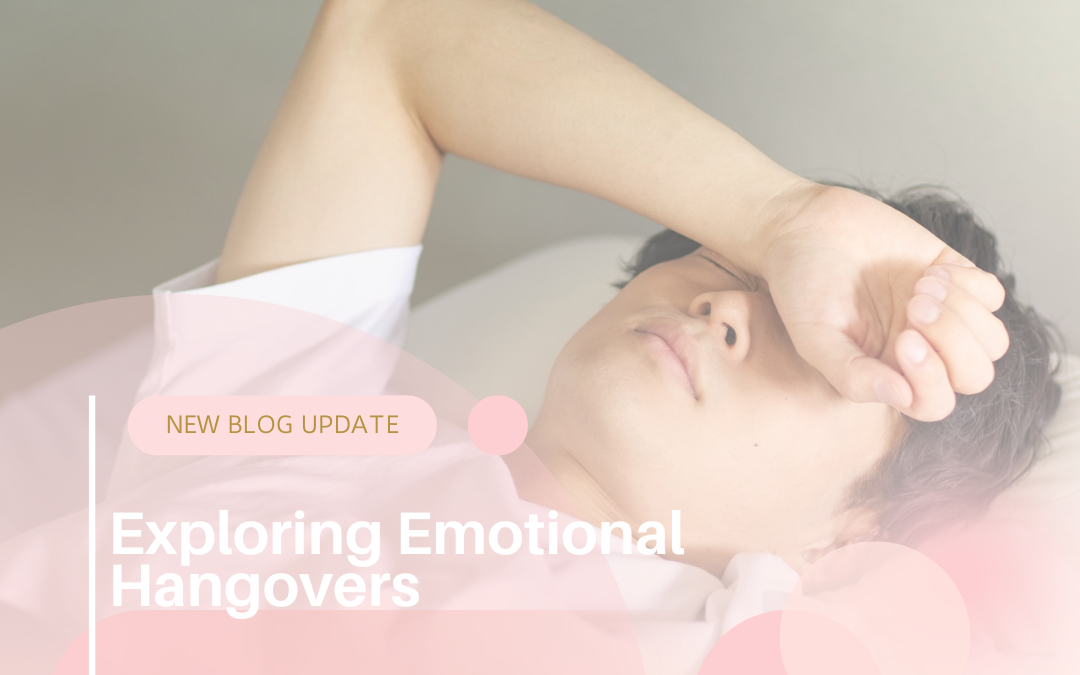You woke up groggy, unsettled, maybe even a little irritated—and yet, nothing “bad” has happened today. If anything, today is quiet. Normal. But something still feels off. Ever been there?
Welcome to the emotional hangover.
We often talk about hangovers in the context of alcohol, but intense emotional experiences can leave behind the same kind of fog: heavy, unclear, drained. Whether it was a conflict with a loved one, an overwhelming therapy session, an anxiety spiral, or even something positive like a big life event—you might still feel the effects long after the moment has passed.
What Is an Emotional Hangover?
An emotional hangover happens when your nervous system hasn’t fully “reset” after a period of heightened emotion. You may have cognitively processed what happened (“I know we’re good now,” “I understand why I reacted that way”), but your body still feels like it’s in the aftermath.
Symptoms might include:
-
Mental fog or difficulty focusing
-
Low energy or physical fatigue
-
Irritability or hypersensitivity
-
A need to withdraw socially
-
Feeling “off” without knowing why
Why Does This Happen?
Emotions are physical, not just mental. When we experience strong feelings, our body kicks into gear—adrenaline, cortisol, elevated heart rate. Even when the emotional trigger is gone, the body often takes longer to regulate itself back to baseline.
Add in some overthinking or replaying the moment in your head (we’ve all been there), and your nervous system never gets a full break. It’s like staying in the shallow end of a pool but still feeling soaked.
The Healing Work No One Talks About
Here’s the thing: emotional hangovers aren’t necessarily a problem to solve. They’re a signal—that something moved through you, and your system is still integrating it.
That’s not failure. That’s healing.
We tend to glamorize emotional growth as cathartic breakthroughs or “aha” moments, but the reality is that sometimes it just feels… weird. Messy. Quietly exhausting. And that’s valid.
How to Move Through It (Without Forcing It)
If you’re in the haze of an emotional hangover, here are a few gentle ways to support yourself:
-
Do Less, Not More: Resist the urge to push through or “make up” for lost productivity. Recovery requires space.
-
Tend to Your Body: Hydrate, stretch, go for a walk—anything that brings you back into your physical self.
-
Name It: Just saying “I think I’m feeling some emotional residue from yesterday” can reduce self-blame and shame.
-
Avoid Over-Analyzing: It’s tempting to rehash the moment, but that can re-trigger the stress. Give it breathing room.
-
Rest Without Guilt: This isn’t laziness. It’s repair. And repair is part of the process.
Final Thought: You’re Not Broken—You’re Processing
Emotional hangovers remind us that growth isn’t always clean or immediate. They show up when we’re doing the work—showing up, feeling things fully, navigating hard conversations. If you’re feeling the weight of yesterday today, it’s not a setback. It’s proof that you’re human.


Recent Comments